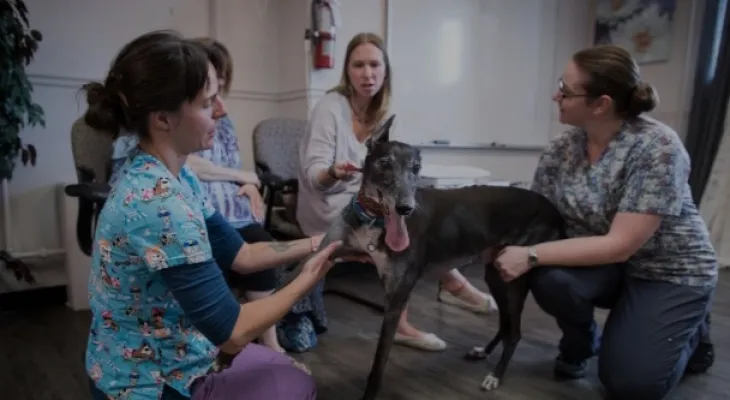Search here
Newspaper
Search here

Arab Canada News
News

Published: November 5, 2023
Veterinarians in Canada said they suffer from severe exhaustion and deteriorating mental health due to staff shortages, the increasing number of animal patients, and round-the-clock work pressure.
Neil Pothier, a veterinarian who has been running an animal hospital in Digby, New South Wales since 1985, said that caring for animals has never been easy, but it’s a job he has always loved.
Pothier also added after a meeting with veterinarians from across Nova Scotia: "But now, all day long, people talk about burnout and consider quitting." "We are struggling to try to make it work."
Pothier said that the increasing workload, which in many rural areas comes with 24-hour on-demand emergency care, leads to severe stress and exhaustion that worsens over time. "People have reached the point where they don’t know what to do. There is already a high suicide rate in the country in our profession, which is terrifying."
Data from a survey collected in 2020 also indicates that veterinarians in Canada were more likely to contemplate suicide compared to the average person. The study, published in the Journal of the American Veterinary Medical Association, found that 26.2% of the 1403 veterinarians surveyed had suicidal thoughts in the preceding 12 months. Canadian Statistics data from 2022 also found that 2.5 percent of surveyed Canadians had suicidal thoughts in the past year.
Pothier, who lost veterinary colleagues to suicide, said that the mental health of veterinary workers has been affected due to the pandemic surge in pet numbers and the shortage of veterinary technologists, technicians, and veterinarians available to work.
Also earlier this year, his patient list grew again after two veterinarians closed an animal hospital in nearby Yarmouth, Nova Scotia. "Two of them, in their age group, just burned out. They couldn’t get help and stepped away."
The veterinary community in the province was also dealt a blow last summer when the only veterinarian in the northern New Brunswick community died by suicide.
Trevor Lawson, president of the Canadian Veterinary Medical Association and a veterinarian for 20 years, said euthanasia of animals has a significant impact on the mental health of veterinary workers, who often form long-term bonds with the pets they care for and pet owners.
Lawson said, "This connection and these relationships are incredibly important." "So I think end-of-life care carries a fair amount of weight that our colleagues have to bear."
Also, Jewett said an additional stress factor is the "ethical crisis" linked to the financial reality of running a veterinary clinic and requiring clients to pay. "If the client doesn’t have the financial resources to cover this (treatment), it is a very terrible feeling for these veterinarians and staff."
John Robinson, registrar and CEO of the College of Veterinarians of Ontario, said the veterinary sector "feels enormous pressure from several different angles."
Comments